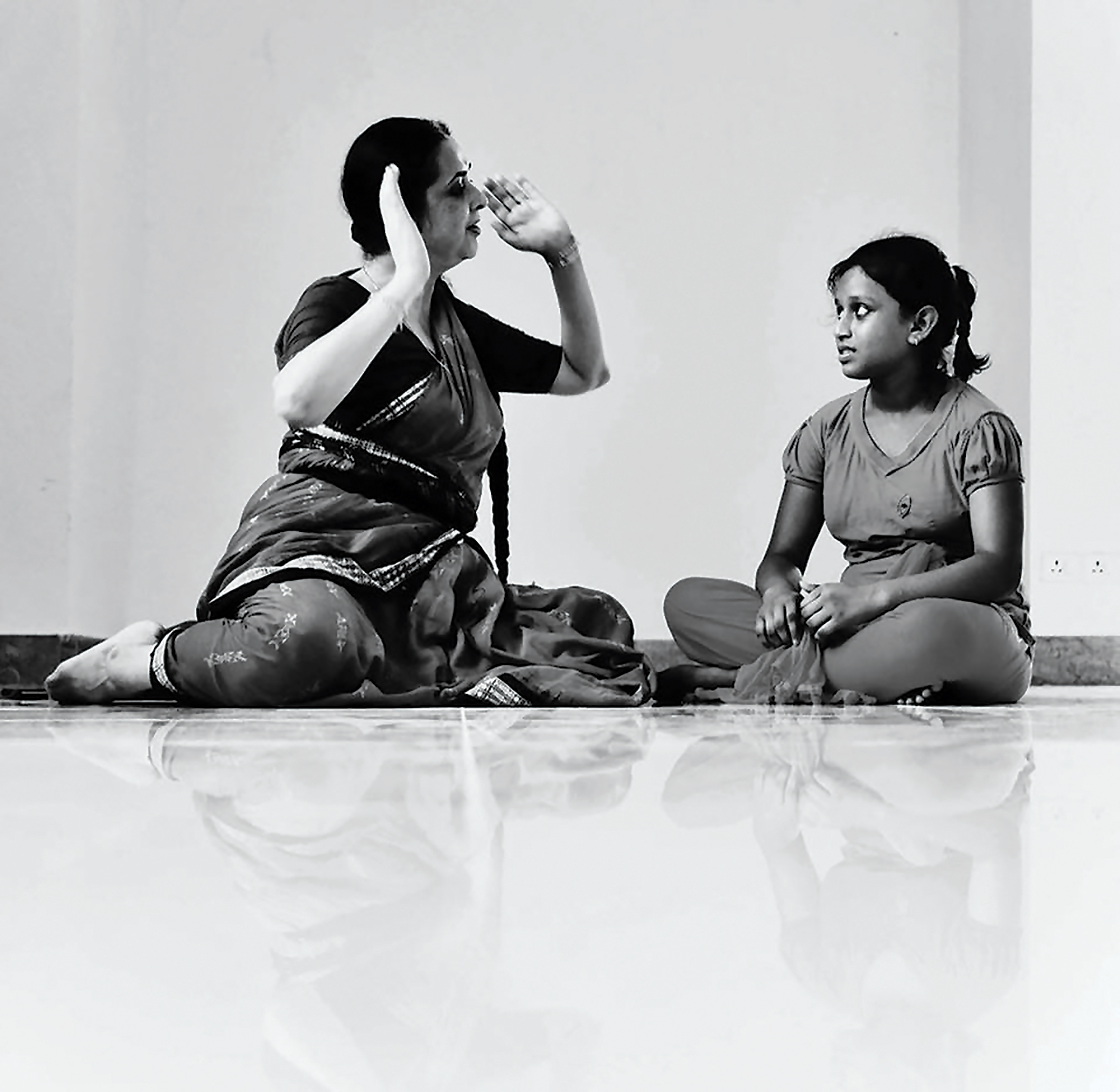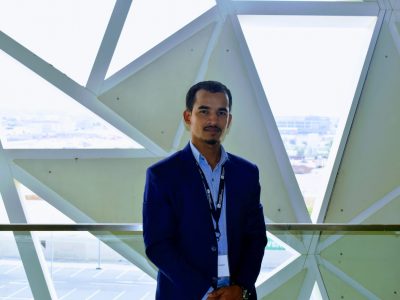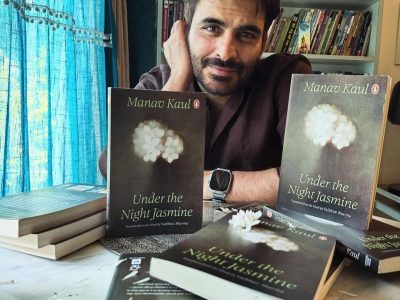The guard at the gate welcomes me in, showing the way up the stairwell leading to Dr Kiran Seth’s home on Lucknow Road in North Delhi. Inside, there is an old world charm along with piles of freshly done laundry and books.
The founder of SPIC MACAY walks out of his kitchen, wearing track pants and a jumper, displaying a warmth which has become unusual for successful people.
He blames the difficulties in getting funding on his apolitical stance — and goes on to say that he would have carried on the very controversial concert which was postponed, if they had the money.
Publicity must have been difficult back when you began
You would be surprised, but back then it was simpler. These are days of advertisement overload, so students hardly see ours. Things have to be put right in students’ faces. Even in IIT where we do the programme, we have to literally put it right in their face.
Back then if you put a nice poster it caught the eye. Today the posters are zero, almost zero.
So how does SPIC MACAY manage to be so successful?
I don’t think it’s successful (laughing out loud). Yes, its successful in one sense as it has aroused a curiosity. But the actual sense of being successful would be when people really understand what this whole thing is about, when many are affected deep in the core.
Though there’s a lot of publicity which says we are doing well, but what is 5,000 programmes in a year? You know how many colleges and schools we have in the country? We have 18-20 lakh institutions. So, we aren’t even touching it.
But just one organisation carrying out 5,000 programmes…
In numbers, it may sound large. But it’s sad that we aren’t able to promote Indian classical art forms in the manner that it should be done. It should be the birthright of every child. (Afterwards) he or she can decide to throw it in the dustbin.
I got it all by fluke. Why should it just be that a person gets introduced to this by fluke or luck?
Was it earlier difficult to get funding?
What earlier? Even now it is difficult to get funding. We are over a crore in deficit. Funding has always been a problem. We are trying to do something which is not popular. If we were doing a rock show or something there wouldn’t be a problem in the funding. Or if we are networking all the time. But most people at SPIC MACAY are not good at networking nor making it populistic. What happens is you have to struggle for funds.
Have you thought of promoting more on social media then?
We are doing a lot but not professionally. When (demand for) money comes up, we have to back out. Young persons are putting it on social media but it’s random, because it’s a voluntary effort.
Your YouTube channel has just about 1,000 followers
Yes, you see, I don’t know how to do it. We are not that savvy in that particular area. For that I think you need some professional guidance which we cannot afford, frankly. Everything has become transactional. Don’t mind me saying it, but media has become transactional.
The idea is not to make it just a programme organising body, the journey is as important as the end. So, we make sure to give responsibility to people so they also grow in it.
Another thing is, the space is shrinking for apolitical people. Either you’re this side or you’re on the other side. I know for a fact that if I just do a little thing — a little few things — I can increase the funding exponentially. Tilt a little way here and there.
Is that why you don’t get much funds because you haven’t given in to any political party?
That’s a fact. I’m not blaming any particular political party; every party has become like that. Life has become like that. You’re either with me or against me. There’s no middle path. I admire many things in this government but I also criticise many things with this government. As I did with the Congress government. So, I’m not going to say that everything is very good in either one.
But there’s no space for me to say that. SPIC MACAY has been supportive of both the governments.
Where is most of the funding coming from? Corporations or the government?
Large part of the funding is coming from government and some from private.
PM in his speech in the 5th international conference said that for us to be united, culture should be promoted. Cancelling an event such as TM Krishna’s due to his ideology, isn’t that contrary to this?
See, in this case again, it’s the same thing: either you’re with me or against me. There’s very little middle ground. Society has also become like that.
What happens is you begin to criticise everything about a particular set up. When a lot of pressure comes on a negative thing then there is a negative reaction. If you see tweets in general, what people are saying is quite in extremes. That’s the objection I have.
Would you have carried on with the event if you had the funds?
If we were doing it ourselves, then the question wouldn’t have come into the picture. Then I can stand up against any pressure. Then it would have been our decision. Yes, I would have done it.
I would have done the whole programme and also made sure that he (TM Krishna) doesn’t say anything or do anything to criticise the government.
Because that isn’t our forum.
I would have had all four (artists), not just him. Not to say that he is special. It would have definitely gone through.
Have you faced such circumstances before where an artists’ ideology has affected an event and you had to cancel it?
No. we never had to cancel. Rather, this event has been postponed. I was not in favour of postponement. But they (Airport Authority of India) had to for whatever reason.
Who would pay for everything? It was a huge event.
If we had any political thing in mind we wouldn’t have called (both) TM Krishna and Sonal Mansingh-ji. All of them have political leanings. We didn’t look at that. We looked at their attainment in the art and their presentation would have been in their art.
Do you plan to have this event later?
Our basic aim is schools and colleges. These big events happen when a big sponsor comes in and says, ‘Look, I only want to do it in the park.’ Suppose if a big sponsor comes, we ask them for giving in schools and colleges.
All these big events are showcases so we can get more money for our bread and butter. These high-profile events bring us into the public eye. So, we get more funding.
I won’t go out of my way to raise money to do a programme in the park.
Lonely crusaders
When a concert was postponed due to a political controversy, SPIC MACAY was unfazed. Their enthusiasm for promoting classical culture among youth is undiminished
On a cold November evening, when Carnatic Sangeet singer TM Krishna performed at the Garden of Five Senses, Delhi-NCR’s citizens were there in full strength. Some were fans, others were there to show solidarity for the resistance to forces reportedly trying to muffle the outspoken singer’s voice.
Society for the Promotion of Indian Classical Music And Culture Amongst Youth (SPIC MACAY), one of the organisers of the (postponed) event, did not get any bad press. This may be down to the fact that its credentials are widely appreciated, and it is a small player in the game compared to its co-sponsor: the Airport Authority of India.
Respect for the institution, well-loved by Delhi’s cultural circles, has grown since its inception in 1977, is because it works on a ‘Robin Hood principle’.
“We take from those that can give and give to those that can’t,” is how founder Kiran Seth, 69, puts it succinctly. Most of their programmes are in schools, with high-profile institutions being asked to pay but government schools being let off the hook. And this is how SPIC MACAY has managed to continue its work and gain strength over four decades.
From one show a year to a few thousand, SPIC grew impressively. The story of how it has managed to sustain itself and become a leader in promoting Indian classical art forms in schools and colleges would be incomplete without the participation of artists. So what do they feel about the whole controversy?
Delhi-based Bharatnatyam dancer Rama Vaidyanathan says that the responsibility lies with artists to create tomorrow’s audience. And since SPIC MACAY’S objective is just that, “My journey with them has been nothing but absolute joy. When I go and dance for school kids and university students, I feel extremely fulfilled and satisfied.”
Regarding the proclivity for raising political issues, she avers that rather than “speak for or against any political views, artists must rise and use their art for addressing social issues”.
Vocalist Sudha Ragunathan, who has had a long association with SPIC MACAY, has similar views. She believes that artists should stick to their art. She suggests that there could have been numerous reasons for postponement of the concert and this isn’t the first such instance. When former prime minister Atal Bihari Vajpayee passed away, a concert at Miranda House college had to be cancelled at the last minute.
The organisation’s national treasurer Rajiv Giri, a young man in his 30s, says that because it does not work for commercial gain, SPIC has managed to avoid being targeted when such a controversy takes place. He says teaching children about art forms is necessary. Not only will they then respect all art forms and the artist, a larger purpose is served — and perhaps it is intertwined — to help youth distinguish between culture and mythology. This, he says, is a gap that our education system does not fill.
“We are not a religious organisation. We are a cultural organization, we are promoting the age- old practices of India”, and this is where an outfit such as theirs suffers, because “people are mixing the two together and coming up and saying we are more important.”
At the same time, artists face resistance when they don’t subscribe to one school of thought. TM Krishna has been targeted for his anti-Modi stance and also because he has sung about Jesus Christ and Allah, whereas right-wing critics say Carnatic music is only for Hindu songs.
“Qawwali performances by Sufi singers include references to Ram and Krishna. Ustad Bismillah Khan, when asked to move to Mumbai, said that “Ganga ko chhod ke kahan jaunga (Where should I go leaving the Ganga river). He was a Muslim. Then there are Drupad artists I know who are practising Muslims but worship Saraswati. And then how does one label Kabir?” Giri asks. All of the resistance is because they “haven’t seen any other art form.”
“What is happening today is that an artist is supported by a government.” But in his view, none of the governments who have been in power are art lovers.
“An artist’s view is personal and government has to promote art. Nothing the government does is going to encourage or discourage the artist from having a viewpoint”, Giri feels.
THE JOURNEY SO FAR
It was way back in the 1970s —the decade when idealism was high — that Kiran Seth was a student at IIT Kharagpur . While he admittedly liked playing his guitar to English music, a staff member’s persistence would eventually evoke a greater feeling for classical Indian music.
“With great difficulty” one whole night of classical music would be organised by the IIT authorities. “We used to go there to see who has come who has not come, play cards, go to sleep”.
But unbeknownst to him, a seed had b
een planted. When he moved to New York for further studies, an ad in the Village Voice caught his attention: Ustad Nasir Aminuddin Dagar and Ustad Fariduddin Dagar were to give a recital at the Brooklyn Academy of Music. Seth went and “that day was very inspiring.”
Such was the impact that he and his friends began organizing programmes at the Columbia University, where he was doing his PhD. Years passed. He decided to come back to India to teach at IIT-Delhi. In the mechanical engineering class he was teaching, he found that his students didn’t know the name of classical sitarist Nikhil Banerjee. They were “in a city like Delhi, supposedly the crème de la crème.” I told them, “You have cassettes of Michael Jackson, Joan Baez and Stevie Wonder and all these people but you haven’t even heard the name of one of the greatest musicians of our country”.
His students agreed to do something about it. The first project was named the Mechanical Engineering Final Year Operation Research Group — MEFOR. In the convocation hall that seated 1,500, only 10 showed up, which was reduced to five by the end of the first raga.
Next year, he got the whole class involved, and called it the Mechanical Engineering Final Years — MEFISE. This time, it was a “marginal success”. Word spread. Now the organisation has grown to a celebrated cultural platform which has shone the light on India’s diversity.
The LIFELINE
With only six paid employees, its life force is its volunteers —currently at a whopping 2,000 — a shining example of how a non-profit can survive despite a shortage of funds. In fact, this year they are currently in the red to the tune of Rs 1.5 crore.
Giri started his stint with SPIC three months ago, working pro bono, although he began volunteering with the organisation back in 2010 – he has done his masters in business administration from IILM. While he manages finances for them day and night, he also works at his father’s business. Here, they nurture young people. Giri says, “Everybody is a boss and everybody is a peon. We have swept the floor and also met ministers.” Even artists meet SPIC half-way, content with an honorarium for their performances, which are often in schools or colleges.
Explaining the outfit’s popularity with youth, he says, “Also, there are very few places where young people are motivated to take up leadership roles,” he says — something that everyone looks for. But this also results in a constant stream of volunteers coming and going. Like students from IIT — they help and then they graduate, which means “the training process with a new student starts all over again.”
The bunch of volunteers aren’t a group of professionals but amateurs “who are trying out everything”. This opportunity to do something different also beckoned Giri. He got hooked at an orientation programme where Seth announced, “Why don’t you join us? We meet every Saturday at Modern School.” So Giri went and ended up joining what he calls an “andolan (movement) and not an organisation.”
Being the finance head of this movement, he gives an insight into the difficulties. “The way government gives us money is very peculiar. They are told, if you need Rs 10 lakh, “spend it and get it audited from a Chartered Accountant that you have spent this amount.” After this they need to provide them with a “certificate signed by the CA and SPIC MACAY”, and only then the money is released. “Sometimes they give us 25% basically in parts and not the complete 100%.”
Thus, most of the time, Giri says, first money needs to be arranged “in order to receive funds from the government”. This means artists get paid late and “All of us suffer. We have a backlog.”
While it seems like the government has enough money, and should fund them better, he says, they have instead cut funding.
From last year’s Rs 2.5 crore it’s gone down to Rs 1.8 crore, whereas “they know we are on an inclining graph and we are doing more programmes.” In fact, paucity of funds puts the brakes on many plans. While two or three years ago they may have done 6,000-7,000 programmes, they now do 5,000.





